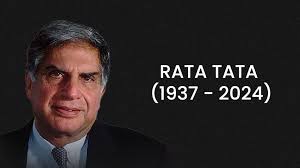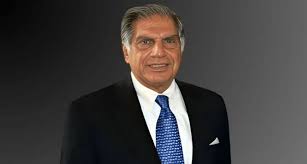
Ratan Tata, a name synonymous with integrity, vision, and leadership, is one of India’s most revered business leaders. As the former chairman of Tata Sons, the holding company of the Tata Group, Ratan Tata played a pivotal role in transforming the conglomerate into a global powerhouse. Under his leadership, the Tata Group expanded its reach across industries, from steel and automobiles to software and telecommunications, earning global recognition and respect.
Early Life and Education
Born on December 28, 1937, in Mumbai, Ratan Naval Tata belongs to one of India’s most prominent business families. He was raised by his grandmother, Lady Navajbai Tata, following his parents’ separation when he was just ten years old. Despite his privileged upbringing, Ratan Tata’s humility and down-to-earth nature have always been defining characteristics.
Ratan Tata graduated from Cornell University in 1962 with a degree in architecture and structural engineering. He later completed the Advanced Management Program at Harvard Business School in 1975. His education and early exposure to international markets played a significant role in shaping his business acumen.
The Rise of a Global Business Leader
Ratan Tata’s career with the Tata Group began in 1961 when he started working on the shop floor of Tata Steel in Jamshedpur. This hands-on experience gave him a deep understanding of the business and the needs of workers at every level of the organization. He steadily climbed the ranks and was appointed chairman of Tata Sons in 1991, succeeding J.R.D. Tata.
During his tenure, Ratan Tata spearheaded a series of transformative moves that positioned the Tata Group on the global stage. Some of his most notable achievements include the acquisition of iconic international brands like Tetley Tea, Jaguar Land Rover, and Corus Steel. These acquisitions not only diversified Tata Group’s portfolio but also symbolized the rise of Indian companies in the global business landscape.

Leadership and Vision
Ratan Tata’s leadership style is often described as bold and visionary. He took calculated risks, like launching the Tata Nano, the world’s most affordable car, aimed at making transportation accessible to millions of Indians. Although the Nano didn’t achieve the commercial success it hoped for, it showcased Ratan Tata’s commitment to innovation and social responsibility.
His leadership also focused on ethical business practices and corporate social responsibility. The Tata Group, under Ratan Tata, has been known for its commitment to philanthropy, environmental sustainability, and community welfare, values deeply rooted in its long-standing tradition of giving back to society.
The Legacy of Philanthropy
Apart from his business acumen, Ratan Tata is admired for his philanthropic efforts. A large portion of Tata Sons’ profits is directed towards charitable causes through various Tata trusts, which have played a crucial role in India’s development in areas such as education, healthcare, rural development, and technology.
One of Ratan Tata’s most significant contributions was in the aftermath of the 26/11 Mumbai attacks. He personally ensured that the victims, their families, and affected businesses received full support, reflecting his deep compassion and sense of responsibility toward his fellow citizens.
Post-Retirement and Influence
Although Ratan Tata retired as chairman of Tata Sons in 2012, his influence on the group and Indian business, in general, remains strong. He continues to be actively involved in various ventures, including his role as a mentor to young entrepreneurs and startups in India through his investment in innovative companies.
Ratan Tata’s post-retirement years have seen him investing in diverse sectors, such as e-commerce, hospitality, and healthcare, often focusing on projects that contribute to social change and nation-building.
Honours and Recognitions
Throughout his career, Ratan Tata has received numerous awards and accolades for his contributions to business and society. He has been awarded the Padma Bhushan in 2000 and the Padma Vibhushan in 2008, two of India’s highest civilian honours. Internationally, he is respected as a leader who has redefined the boundaries of Indian business, and his contributions have earned him several global recognitions.
Conclusion
Ratan Tata is more than just a business icon; he is a leader with a heart. His life and career have been guided by values of humility, integrity, and a deep sense of responsibility toward society. Through his visionary leadership, he not only expanded the Tata Group’s horizons but also set a gold standard for ethical business practices. Even in retirement, Ratan Tata continues to inspire millions of people in India and around the world, proving that success is not just about profits but about making a lasting, positive impact on society.



